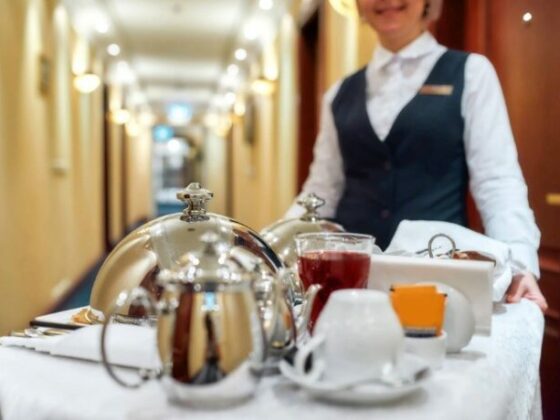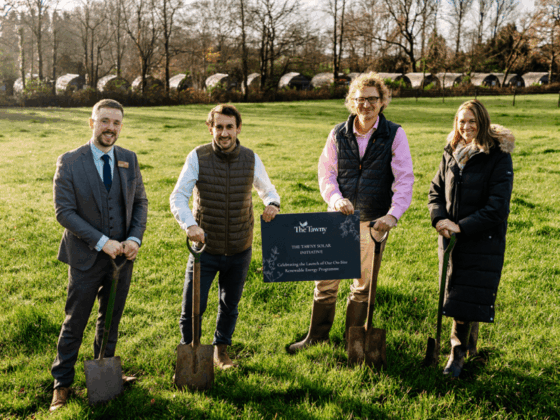
Each industry has its own set of unique issues, but hospitality’s customer-facing work, late-night hours and smaller staffs can lead to more incidents in the workplace, leaving organizations, such as hotels, more susceptible to persistent problems. For example, in the hotel industry, 53% of workers have reported sexual harassment while on the job. A further 35% of women in the general workforce have reported being sexually harassed at work, versus 89% of women working in hospitality.
Building a company culture that values ethics and encourages speaking up with concerns is a must for hospitality companies to protect employees at all levels. A “speak-up” culture protects your company, your employees and your customers, helping to ensure your organization remains a compliant and desirable place to work
The Importance of a Speak-Up Culture
A speak-up culture builds mutual respect and trust between employer and employee and also the customer and company. It is reliant on transparency and accountability from all parties. When reporters feel safe and are encouraged to raise issues, everybody wins as employees and customers know that you’ll take their concerns seriously, no matter what or who their complaint involves.
However, you cannot build a speak-up culture over night. You need the right tools, supported by the right policies, to help begin to transform how employees, stakeholders and customers think about wrong doing in your establishment.
If you are suffering from a lack of reporting in general or a flawed reporting process, one of the first—and arguably one of the most important—steps is to implement a robust whistleblower hotline to empower employees and customers to report concerns. The term whistleblower hotline may still have a negative connotation for some; however, it essentially refers to a tool for employees (and, in many cases, external stakeholders, including customers) to anonymously report any wrongdoing that they do not feel comfortable speaking about directly. Also, in many cases simply called an ethics reporting hotline or reporting hotline.
When employees and customers feel safe making a report, you’ll uncover problems before they balloon into widespread, potentially harmful and expensive incidents. Whether it involves sensitive issues, such as harassment or financially damaging scenarios like stealing and fraud, the degree of damages grows exponentially the longer they are left unchecked. In addition to protecting your people faster, you’ll also reduce your risk of non-compliance fines and lawsuits, as your investigation process is probably more transparent and unbiased. Over the long term, your company will gain a reputation as a place where employees are empowered and that operates ethically, attracting new applicants and customers.
Tips for Implementing Ethics Reporting Tools
1. Prioritize Anonymity
The whole goal of implementing a reporting hotline is to catch issues that employees do not feel comfortable bringing forward to management, supervisors or even colleagues. When it comes to harassment, bullying or witnessing issues secondhand, reporters often fear how they will be perceived and treated upon voicing their concerns. Is there a chance the issue will get worse? Or, perhaps, if the issue involves upper-management members, will I be fired?
By prioritizing fully anonymous reporting, these concerns are almost completely eliminated. Reporters are confident that when they bring forward the issue without their name being attached, possibilities for retaliation or unwanted confrontation are limited.
However, it is important to note that in cases where incident reports involve breaking laws, local law enforcement may have to be notified, and their investigations will likely disassemble any anonymity clauses to some degree.
2. Make Your Hotline Multilingual
In the hospitality and tourism industry, many employees speak more than one language, especially if they work for a company with properties around the globe. Your customers likely speak many different languages, as well. So why would you require whistleblower reports to be made in just one language?
If an employee or customer opens a whistleblowing form or calls a number only to be met with a language they don’t speak well or at all, they’re likely to abandon their report, which puts them and your company at risk. Offering service in multiple languages, however, shows that you want to give every employee and customer a voice.
Still not sure if you should offer a multilingual whistleblowing platform? Consider these three scenarios:
- You operate a property in a bilingual country (e.g., Canada, India, Belgium). Because these countries have multiple official languages, you might be required by law to allow your employees to work or serve customers in more than one language.
- You operate in multiple countries. Waiting for a translator to interpret a report could mean the difference between a minor issue and a widespread, damaging incident.
- Your employees work in one language but prefer to speak another. Just because an employee speaks a language for their job doesn’t mean that they have the skills to articulate an issue in that language, especially if they’re in distress after an incident like harassment or discrimination.
Survey Employees About Your Hotline
Having a hotline and/or other reporting mechanisms in place for employees and customers is widely accepted as best practice in the hospitality industry. As mentioned above, it’s one of the most important aspects of a speak-up culture.
But do your employees and customers know about your hotline? Do they know how to use it and what they should report? A reporting hotline use survey can tell you if your communications about your hotline are landing.
If you’re unsure what topics to cover in your survey questions, start with what to report, knowledge of the hotline, and preferred reporting method. Use these sample questions as a template:
- Do you know that [company name] has an ethics/fraud/employee relations/customer concerns hotline available for anonymous reporting/questions?
- Have you witnessed any behavior at a [company name] property that may be something worth reporting? If so, what was it? [Add a free text area below for elaboration.]
- Which of these behaviors do you think should be reported on our company’s hotline? Check all that apply. [Include issues including harassment, violence, corruption, theft, and safety issues.]
- Have you ever wanted to report something but felt uncomfortable or intimidated to do so?
- Have you ever reported on anything and not received any feedback or response from [company name]?
- If you have reported in the past, what mechanism did you use? Which mechanism would you prefer to use if you reported something today? [Applicable only if you have more than one reporting mechanism.]
For best results, send out separate surveys to employees and customers. You’ll likely get different types of reports from each group, and they also receive different communications surrounding your culture and hotline availability.
As the name suggests, a speak-up culture values openness. If employees or customers witness an incident, have a concern about an organizational policy, or simply have a question, they can bring it up to anyone within the organization. In return, the company addresses all reports and maintains a zero-tolerance approach to retaliation against reporters. When reporters can speak up freely and workplace safety is prioritized in this way, hospitality organizations are able to flourish.
Story contributed by Shannon Walker, EVP of strategy, Case IQ.








